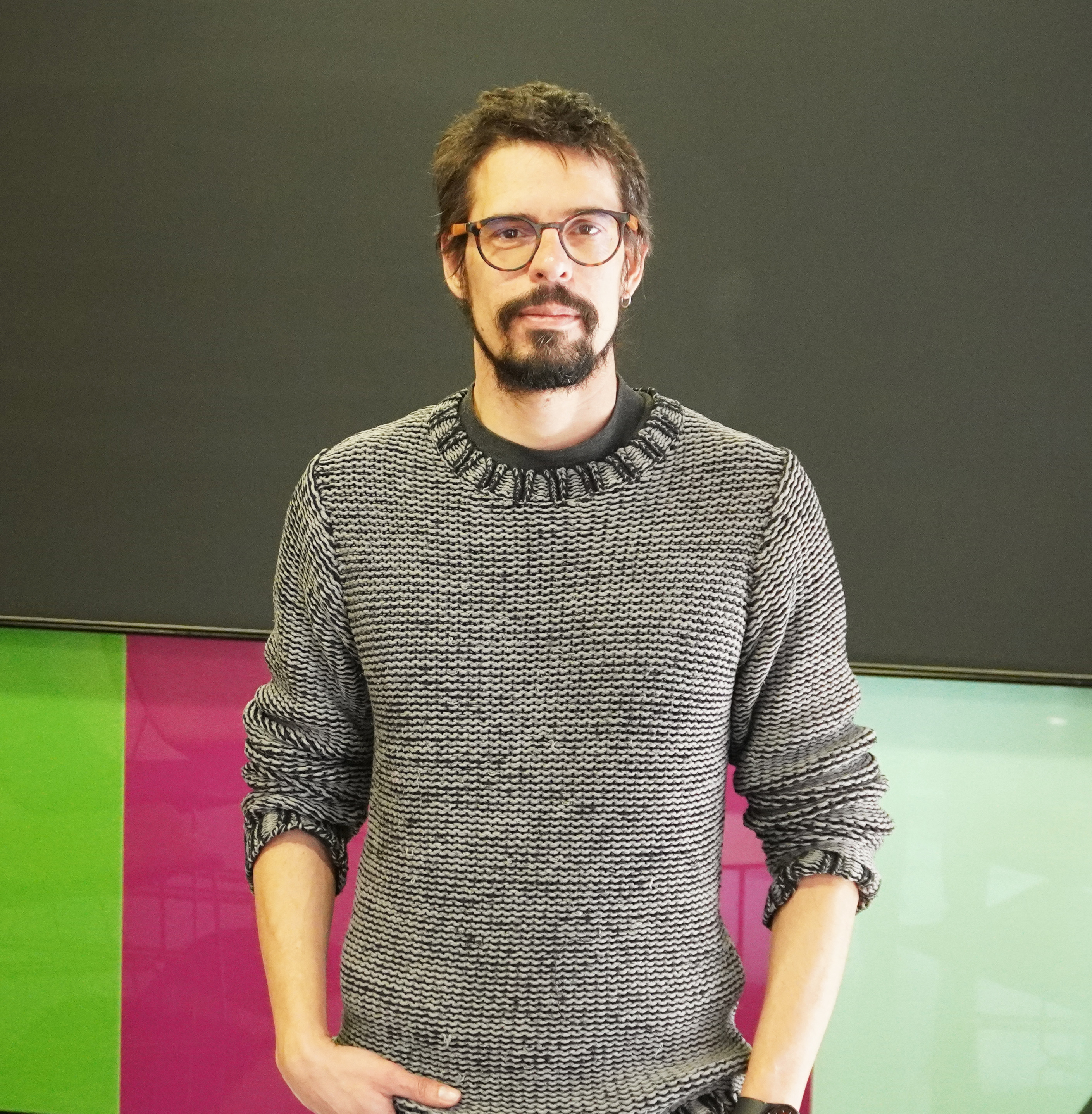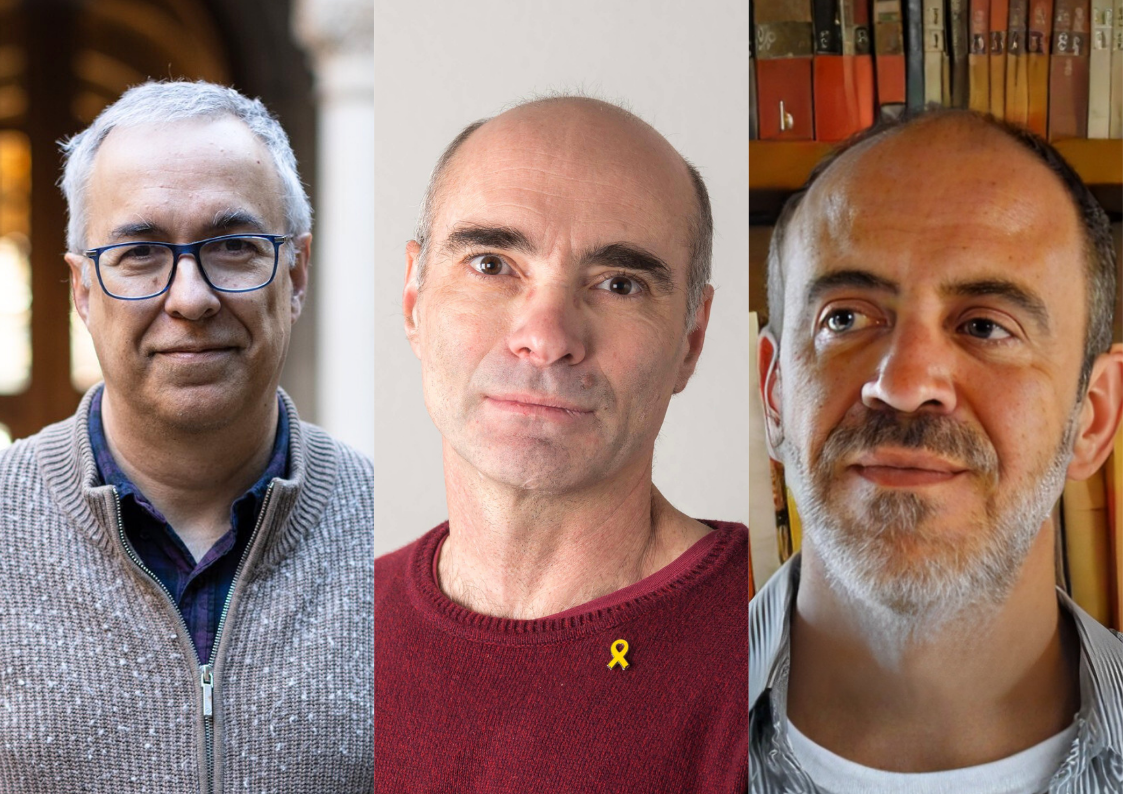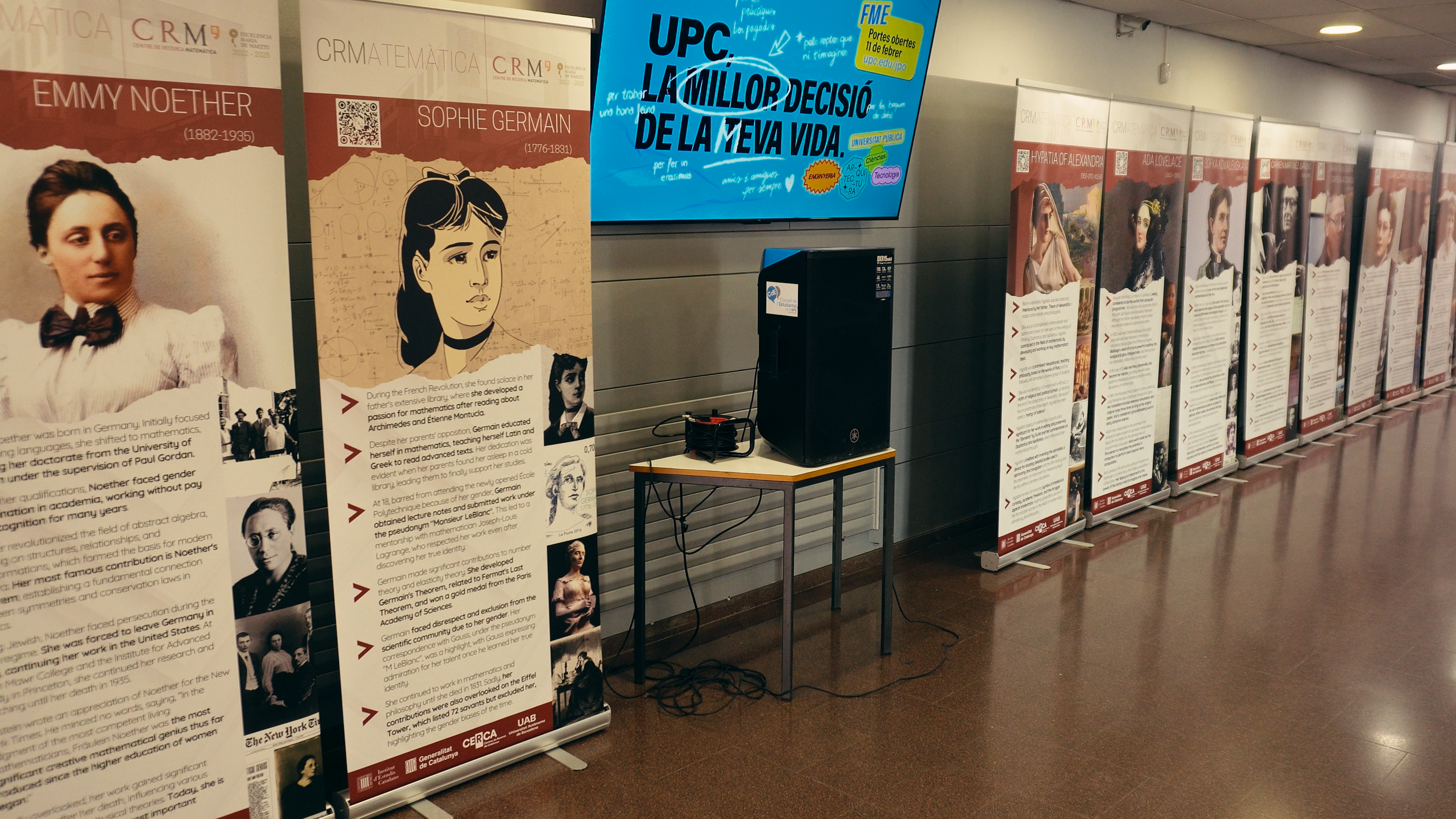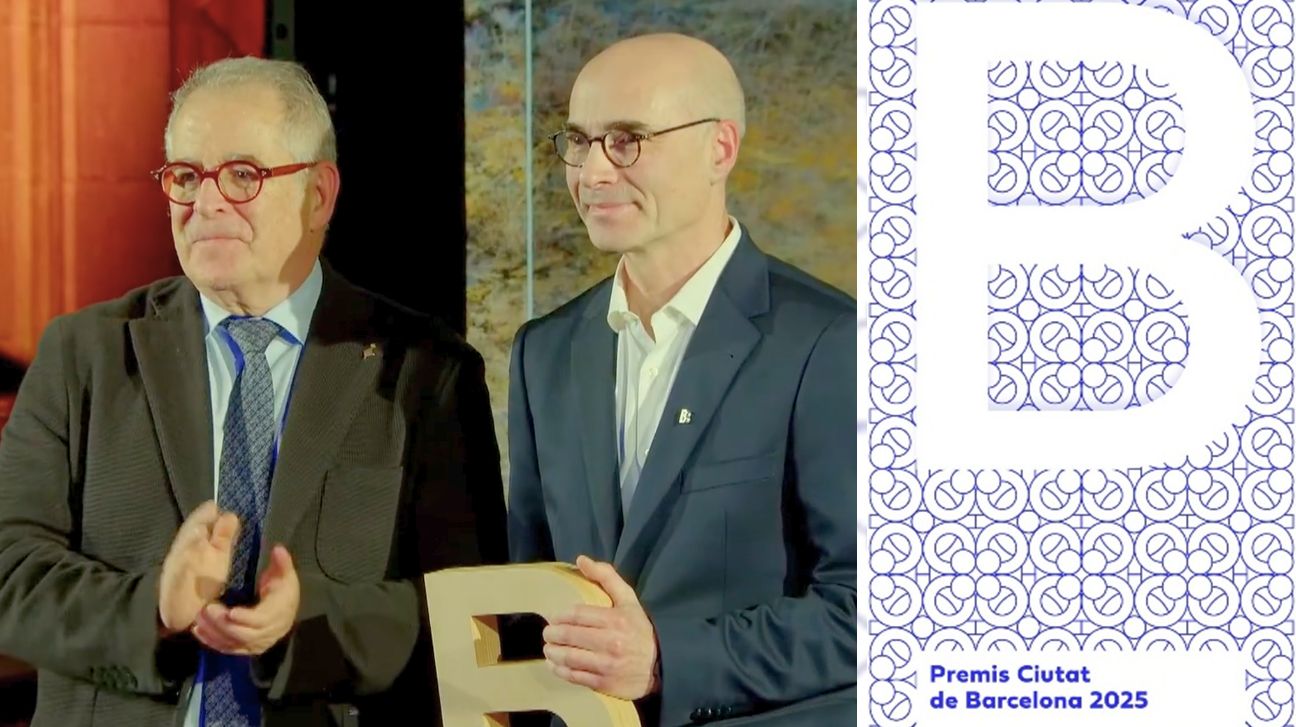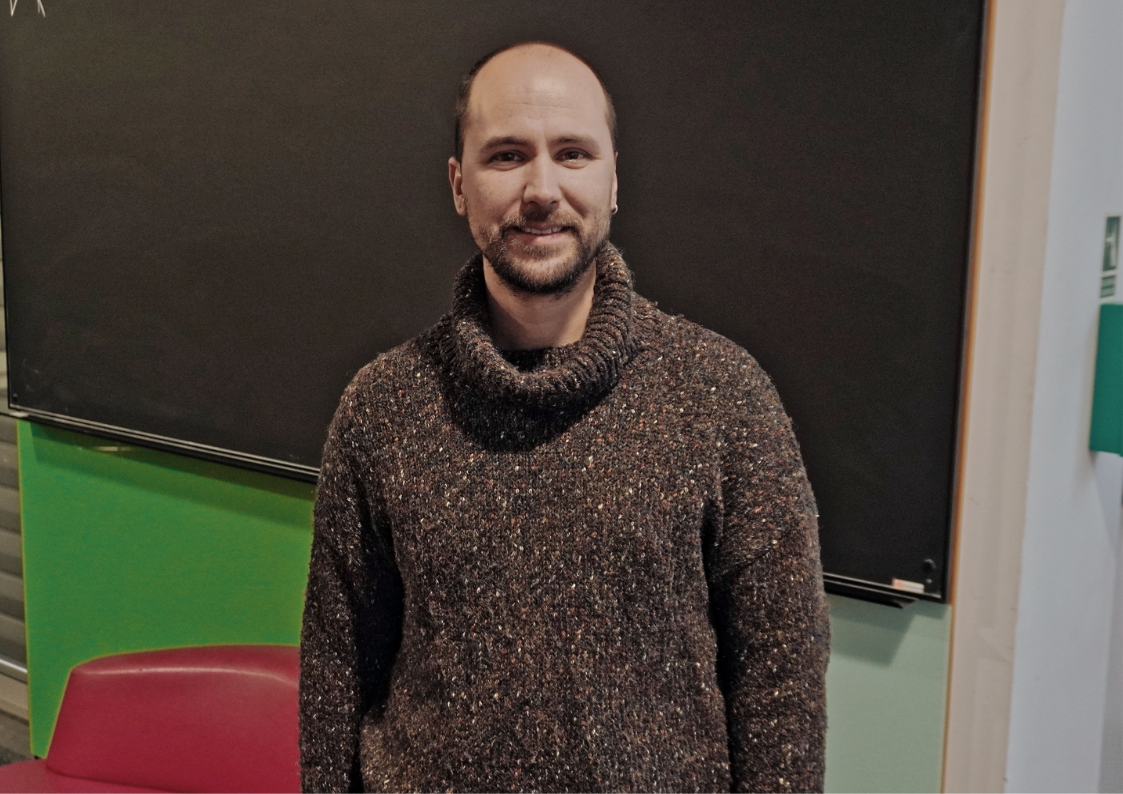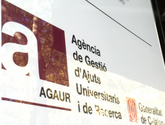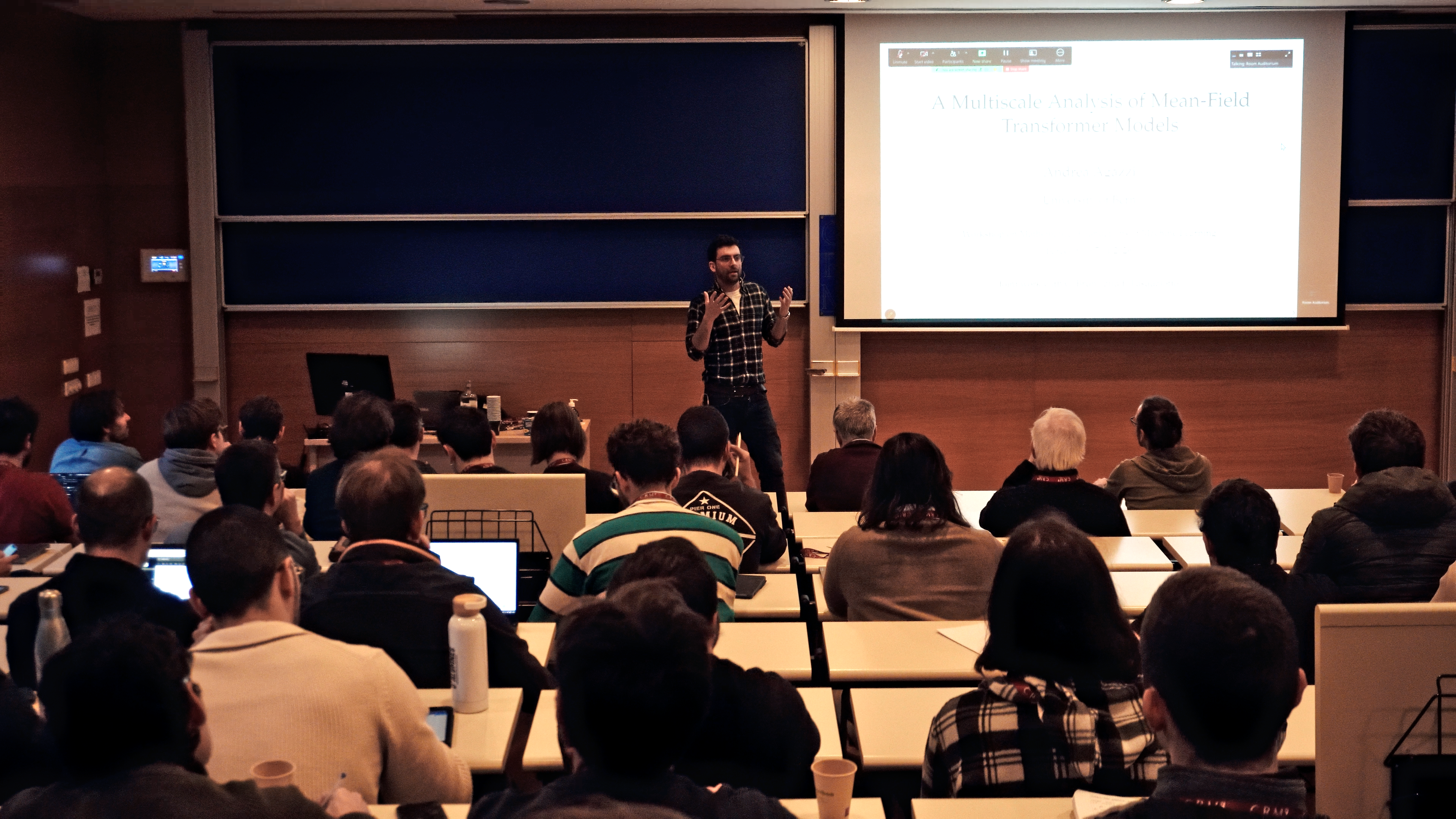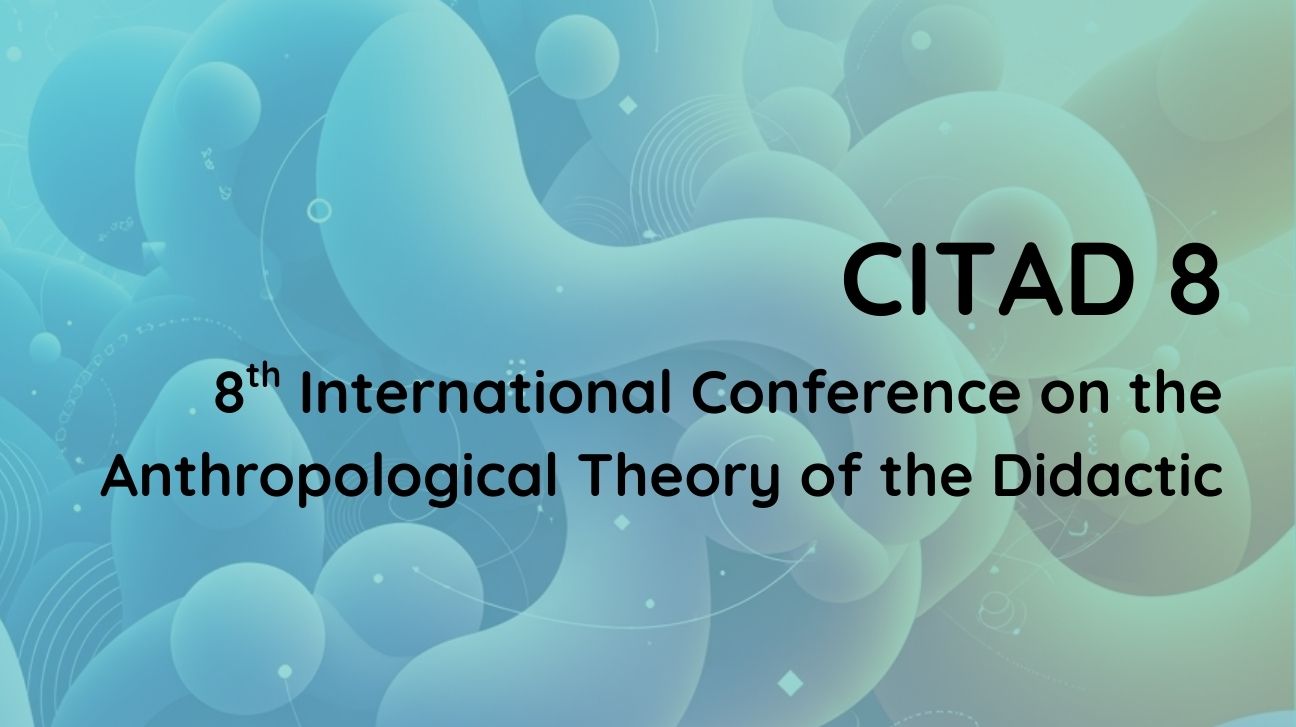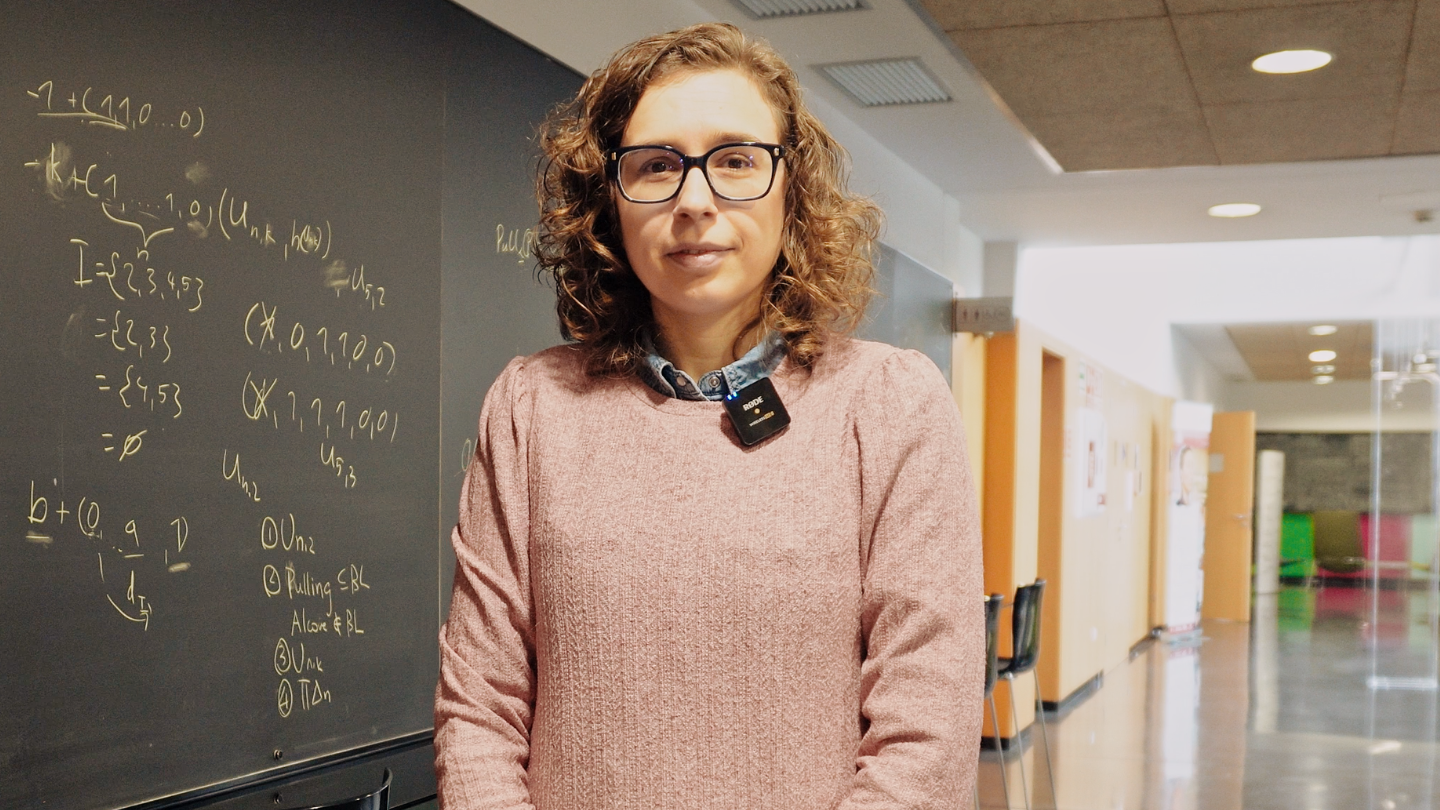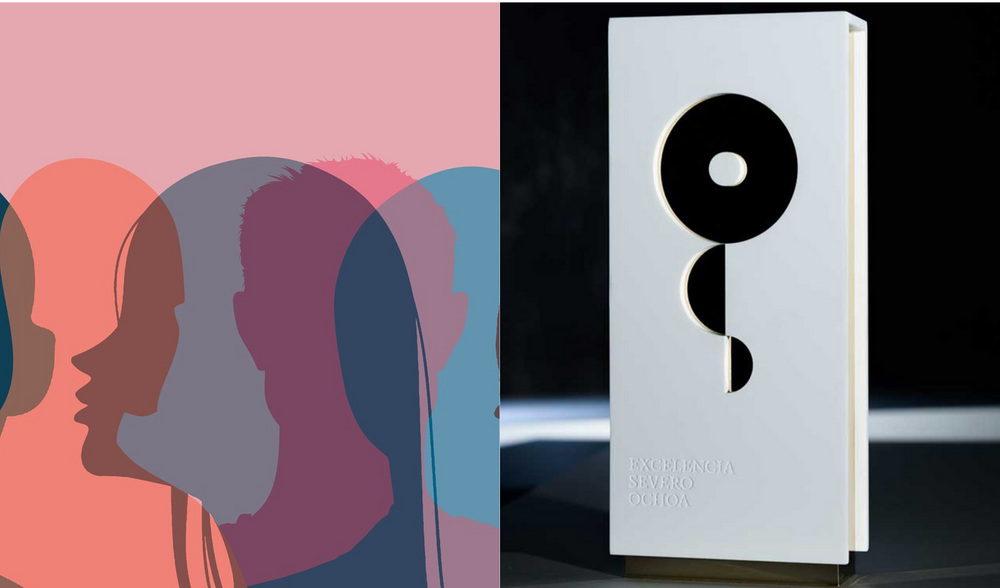
In the first months of the 2022-2023 academic year, 5 pre-docs and 9 post-docs have joined the CRM research staff, 7 of which were supported by the Maria de Maeztu (MdM) award. They have joined groups from a wide spectrum of fields, from Mathematical Biology to Algebra, including Industrial Mathematics and Dynamical Systems. This growth in the staff of the CRM is good news for the quality of the Catalan mathematical research.
One of the indicators of the success of the recruitment process that the CRM studies is the gender balance reached. In this occasion, 6 out of the 14 new researchers incorporated during the period are women. Moreover, parity is reached in both categories: 2 out of 5 pre-docs are women and in the case of post-docs, the number is 4 out of 9.
There exists a general problem in recruiting female talent in STEM disciplines. In academia, the problem grows bigger as the research stage is more advanced, what is called the retention of talent: many women start as a PhD, however, very few of them become Professors. This is one of the motivations of the CRM focusing on the post-doc category to try new and fair methods to boost women recruitments. The MdM postdoc programme has applied a gender-bias conscious campaign and selection process. For the first call, out of seven hired postdocs, three of them are women.
First of all, the dissemination of the MdM post-doc call was done with a carefully designed campaign. The call was posted in Mathematics webpages that reach out to women (e.g: Women in Mathematics), was mindful with the language used and aimed for inclusiveness.
Secondly, the recruitment and selection method focused on engaging women as evaluators at all stages. In the first stage, a remote evaluation was conducted with 2 experts per candidate. In the second and last stage, the shortlisted candidates -a minimum of 3 and maximum of 6 per position- were interviewed by a panel of 3 members. The panels had at least a woman in every case. This was applied due to an unconscious bias of the interviewer: the similarities to their own self observed in the interviewee affect positively in its evaluation, as a result of the projection of their own strengths. Therefore, a wider variety of interviewers also helps to increase the chances of a wider variety of people getting the job.
In the last place, the focus is put in trying to maximize the number of female candidates that arrive to the interview. After the first stage, results are reviewed by a Panel chair so, for example, if two scores for the same candidate are differing by 20%, the moderator calls for a consensus meeting with the two evaluators, and eventually, organizes a third evaluation for that candidate. The Panel moderator also hands out to the Recruitment Committee handling the process at CRM (headed by Director and MdM Scientific Director) a shortlist of the candidates to be interviewed. In the MdM post-doc call, the shortlist was requested to be extended as to include one woman.
Arantxa Sanz, CRM’s Head of Strategy and member of the CRM Equity Committee, has driven the introduction of the gender perspective in the recruitment process. She participated in the final workshops of the LIBRA H2020 Project (1), addressing gender equality in academia and how to articulate gender plans and actions deriving from them. More specifically, one of the project work packages was focused on recruitment without Gender Bias (2), from which some of the ideas that have been implemented in the CRM-MdM postdoc recruitment method were hinted (some of them previously tested for the CAFE-ITN). She also got advice from the Universitat Autònoma de Barcelona’s Equality Observatory and collected some cases of good practices (e.g. Those from Anita’s Borg Institute (3)). Facts and knowledge on strategies that work are needed since some procedures to increase the number of women in research are not as fruitful as it would seem. For example, opening positions just for women doesn’t lead to a long-term change. For structural transformations, more subtle and strategic adjustments need to be introduced.
In the soon-to-start year, another MdM post-doc selection process will start, hopefully with results as good as this first round. These actions are one of the measures in the CRM Equity Plan (21-23) and are aligned with the goal of making science more approachable and giving more people the opportunity to shape research. As Arantxa states, gender is the first step to open to more kinds of diversity.
References:
(1) LIBRA H2020 project: https://www.eu-libra.eu/
(2) LIBRA’s Work Package: Recruiting without Gender Bias: https://www.eu-libra.eu/work-packages/recruit-without-gender-bias
(3) Anita Borg’s Institute (Google-related foundation, focused on attracting and retaining more women into technological careers) material:
https://anitab.org/wp-content/uploads/2020/08/woc-case-study-2018.pdf

CRM Comm Team
Anna Drou | Pau Varela
CRMComm@crm.cat
Subscribe for more CRM News
Trivial matemàtiques 11F-2026
Rescuing Data from the Pandemic: A Method to Correct Healthcare Shocks
When COVID-19 lockdowns disrupted healthcare in 2020, insurance companies discarded their data; claims had dropped 15%, and patterns made no sense. A new paper in Insurance: Mathematics and Economics shows how to rescue that information by...
El CRM Faculty Colloquium inaugural reuneix tres ponents de l’ICM 2026
Xavier Cabré, Joaquim Ortega-Cerdà i Xavier Tolsa, tots tres convidats a parlar al Congrés Internacional de Matemàtics del 2026, protagonitzaran la primera edició del nou col·loqui trimestral del Centre el 19 de febrer.El Centre de Recerca...
L’exposició “Figures Visibles” s’inaugura a la FME-UPC
L'exposició "Figures Visibles", produïda pel CRM, s'ha inaugurat avui al vestíbul de la Facultat de Matemàtiques i Estadística (FME) de la UPC coincidint amb el Dia Internacional de la Nena i la Dona en la Ciència. La mostra recull la trajectòria...
Xavier Tolsa rep el Premi Ciutat de Barcelona per un resultat clau en matemàtica fonamental
L’investigador Xavier Tolsa (ICREA–UAB–CRM) ha estat guardonat amb el Premi Ciutat de Barcelona 2025 en la categoria de Ciències Fonamentals i Matemàtiques, un reconeixement que atorga l’Ajuntament de Barcelona i que enguany arriba a la seva 76a edició. L’acte de...
Axel Masó Returns to CRM as a Postdoctoral Researcher
Axel Masó returns to CRM as a postdoctoral researcher after a two-year stint at the Knowledge Transfer Unit. He joins the Mathematical Biology research group and KTU to work on the Neuromunt project, an interdisciplinary initiative that studies...
The 4th Barcelona Weekend on Operator Algebras: Open Problems, New Results, and Community
The 4th Barcelona Weekend on Operator Algebras, held at the CRM on January 30–31, 2026, brought together experts to discuss recent advances and open problems in the field.The event strengthened the exchange of ideas within the community and reinforced the CRM’s role...
From Phase Separation to Chromosome Architecture: Ander Movilla Joins CRM as Beatriu de Pinós Fellow
Ander Movilla has joined CRM as a Beatriu de Pinós postdoctoral fellow. Working with Tomás Alarcón, Movilla will develop mathematical models that capture not just the static architecture of DNA but its dynamic behaviour; how chromosome contacts shift as chemical marks...
Criteris de priorització de les sol·licituds dels ajuts Joan Oró per a la contractació de personal investigador predoctoral en formació (FI) 2026
A continuació podeu consultar la publicació dels criteris de priorització de les sol·licituds dels ajuts Joan Oró per a la contractació de personal investigador predoctoral en formació (FI 2026), dirigits a les universitats públiques i privades del...
Mathematics and Machine Learning: Barcelona Workshop Brings Disciplines Together
Over 100 researchers gathered at the Centre de Recerca Matemàtica to explore the mathematical foundations needed to understand modern artificial intelligence. The three-day workshop brought together mathematicians working on PDEs, probability, dynamical systems, and...
Barcelona + didactics + CRM = CITAD 8
From 19 to 23 January 2026, the CRM hosted the 8th International Conference on the Anthropological Theory of the Didactic (CITAD 8), a leading international event in the field of didactics research that brought together researchers from different countries in...
Seeing Through Walls: María Ángeles García Ferrero at CRM
From October to November 2025, María Ángeles García Ferrero held the CRM Chair of Excellence, collaborating with Joaquim Ortega-Cerdà on concentration inequalities and teaching a BGSMath course on the topic. Her main research focuses on the Calderón problem,...



